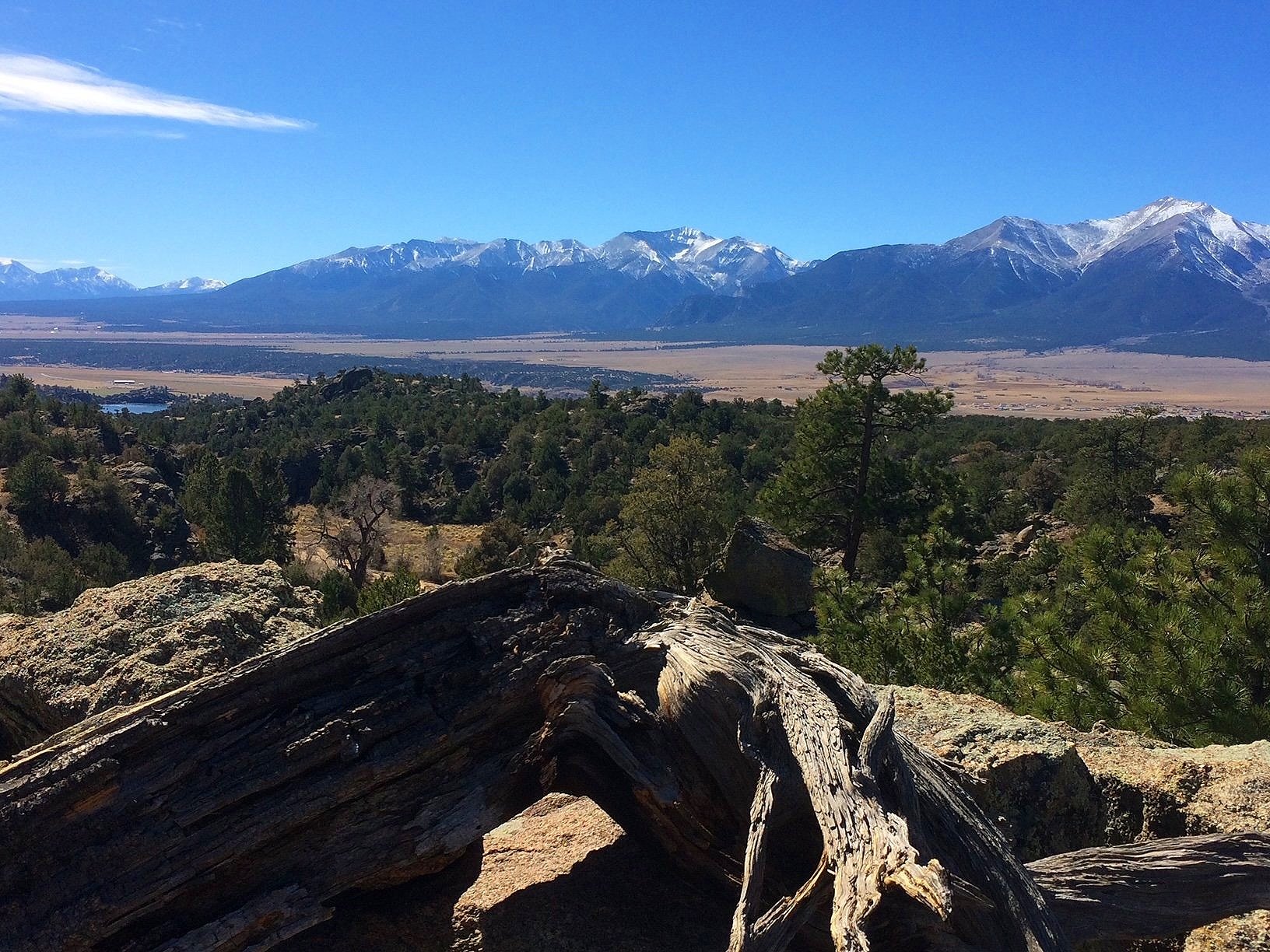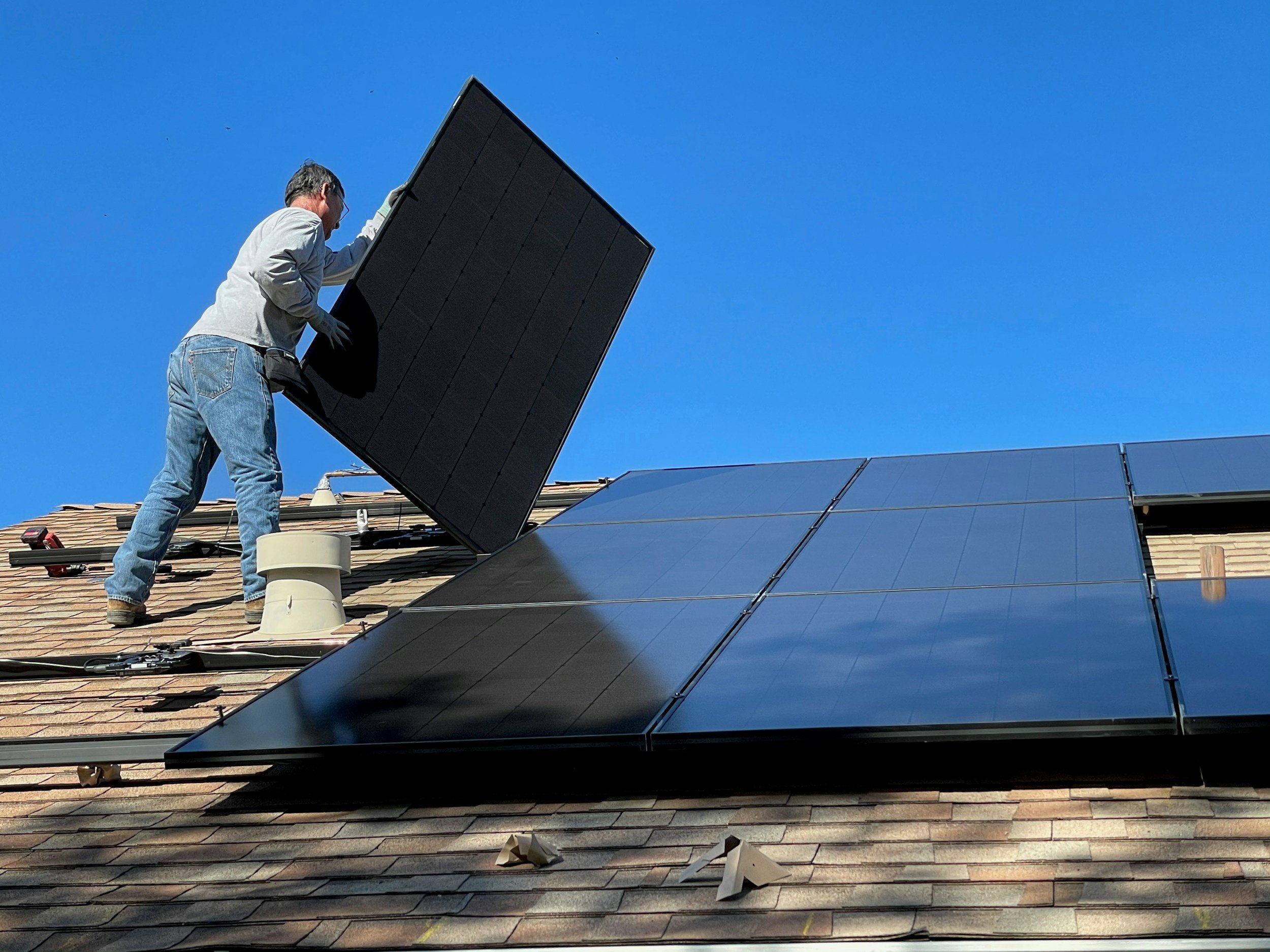
We are a voice for Sangre de Cristo Electric Association members who support our vision of a cleaner, more independent, lower cost energy future in the upper Arkansas River valley.
Our Mission
We advocate for powering the upper Arkansas River valley with more local, renewable energy and battery storage to increase energy independence, improve grid resiliency, boost our local economies, and protect our environment for future generations.
We can improve our energy future.

Working Groups
Working groups formed based on feedback from our community engagement process. These include Education, Clean Energy Transition and Election Campaigns.
Click below to learn more about what these groups have been doing.
Centralized vs. Distributed Power
For decades, buying electricity from large, centralized power plants was the cheapest option. But rapidly changing renewable energy technologies, including battery storage, promise a new model. Distributed, utility-scale renewables are now able to produce power within the communities they serve.
Each year Sangre de Cristo Electric sends about $11 million out of our local economy to pay Tri-State for electricity, half of which is for expensive peak power usage during evening hours. If we could generate and store more of our electricity locally, we could keep a portion of that money circulating within our communities, diversify job growth and lower costs for co-op members.
How much can you get in electrification incentives?
〰️
How much can you get in electrification incentives? 〰️
Now there is a new online tool developed by Google fellows and the nonprofit Rewiring America, that puts all of Colorado’s available federal, state, local and electric utility incentives into one easy search.
Check it out here!

Distributed Energy and Net Metering
There’s a great deal of mis-information about distributed energy and net metering. Distributed energy refers to energy that is generated locally on the distribution system (as opposed to the transmission system). In our region it may include, but not be limited to, installations such as the 2MW Trout Creek Solar Project, home/business rooftop solar, battery storage, wind turbines and small-scale hydroelectric power. With the exception of the utility-scale Trout Creek project, these other residential and commercial energy generation systems are often net metering their energy with the Sangre de Cristo Electric Association (SDCEA) and Xcel Energy. The net metering process involves customers exporting excess electricity generation to the grid, and receiving a 1:1 retail credit (per Colorado law) on their monthly bill for providing local clean energy to their neighbors via the existing distribution system. The vast majority of net metering customers at SDCEA generate energy using rooftop (or ground mounted) solar systems. Net metering from wind and hydropower is relatively small in comparison to the amount of solar in our region. Rooftop solar has historically been supported by net metering regulations across the U.S.
Net metering laws have been under attack in several states and Colorado could be revisiting its 2008 net metering statute during a future legislative session. Governor Polis has requested that the Colorado Energy Office form a statewide task force of stakeholders to examine the current state of net metering and consider changes to the law. AVEF formed an advisory group of interested net metered customers to conduct an in-depth examination of the current situation at SDCEA. A report (link below) was developed by AVEF Director Deb Hannigan using input from the advisory group and the other AVEF Directors.









